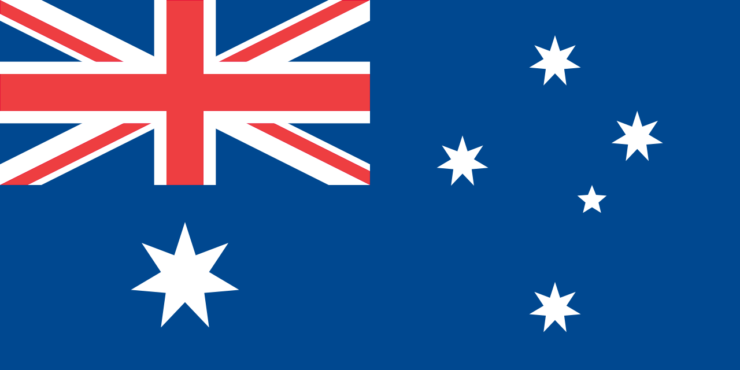Australia is on fire.
It is not the only disaster happening in the world. It is not that we have not had fires before. But the breadth and impact are unprecedented.
This post will not summarise the situation, or lay out all the causes and consequences. Much of it is obvious, and there are so many people in the midst of it who are yet to tell their stories, and many good journalists, scientists and historians who are taking on that responsibility — most reputable news sites have by now published overviews. And the fires are still burning. They are moving slow and fast, high and low, through places that have burnt already, and others that have rarely been threatened before. The stories are still emerging.
A caveat: although many of my friends have been caught up in the fires, I am not being directly affected, and I am not an expert. I hope a roll-call will gradually be taken of those who have been, and are, so that they can be supported and promoted.
But here, as a placeholder, at least, are five notes about the fires burning in Australia.
What stories are we hearing?
What is burning? Innocence? Ignorance? Homes and crops and bush and ancient forests and endangered species?
Australia is roughly the size of the contiguous United States, but with less than a tenth of its population, and that is not densely concentrated: only 5 Australian cities have populations of more than 1 million, and none over 6 million. But the majority of Australians live in the developed coastal areas, and most ground transport is channelled through that ring of country. Combined with climate and policy, this shapes the current situation. You’ve probably seen the footage: communities isolated, evacuations from beaches, people cut off from rescue in visibility too poor to permit air lifts, and smoke choking capital cities.
The losses, tragic as they are, are difficult to convey through statistics. The losses of human life and property (still climbing) may not seem to correlate with the area affected (at the time of writing, 26 million acres) or the degree of coverage; the losses of animal life (estimates of over a billion, including endangered populations, with consequent destruction of biodiversity) are easier to report than imagine.
But what is burning and being threatened, damaged, and lost is far more than (relatively) replaceable buildings and the traces of (relatively) short European history, or the severing of a few generations of contact with a landscape (genuinely painful as that is).
The impact of the fires on the very ancient homelands and cultures of Indigenous Australians, the landscapes so connected to their stories, and the landscape whose management they have been responsible for, is frequently overlooked by media and statistics.
As people of stories — writers and readers both — we should all remember to look hard the stories we are telling and being given, to find out what is being assumed, and what is missing, and why.
What Are the Storytellers Doing?
The arts in Australia are typically underfunded and dismissed, but they continue to happen, and in the midst of the fires writers and readers in Australia have been gathering to raise funds for many aspects of fire-fighting and recovery.
One of the most visible campaigns has been #AuthorsForFireys auction, a decentralised Twitter-based auction (initiated by YA and childrens’ authors Emily Gale and Nova Weetman) to support the volunteer fire services. Outside of the cities, the initial responsibility for dealing with fires falls to each States’ volunteer-based Community or Rural Fire Services (CFS/RFS). These have been struggling to meet the scale of these fires.
Authors, editors, illustrators, book collectors, publishers, editors, agents, singers, opera companies and more have offered an array of books, art, opportunities and services in exchange for donations to the charities — a scheme large enough to potentially cause ripples at Australia Post. This and other initiatives remind us of the very practical role stories, and the people who work with and love them, can have on the world. We are, after all, more than just our words.
The Fire Among Our Friends
The beautiful hills, the bush, the valleys and farmlands are cut off, or on high alert, or burning, or gone. Much property and history has been destroyed, thousands of Australians have been evacuated, or under threat, or suffering severe health impacts, or are supporting friends and family and community, or raising funds, or fighting fires. The majority of state capitals have been affected by haze to varying degrees, some scarcely seeing the sun for months, with corresponding health risks. The national capital, Canberra, has at points been all but shut down by smoke.
Many of the friends I have there — writers and illustrators alike — have had to relocate because of the dangerous air or flee the approaching fires, have lost property, or have been fighting fires while their own livelihood is at risk.
Buy the Book
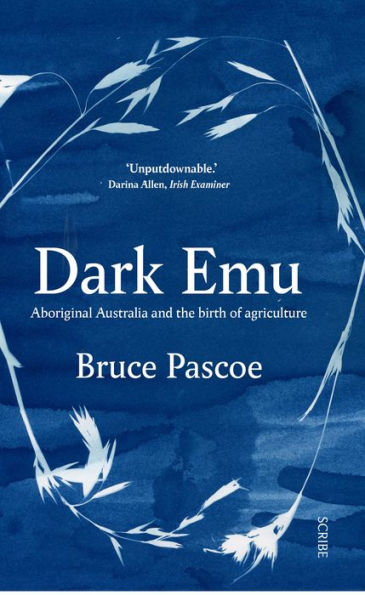

Dark Emu
These people will tell their own stories in time — for now, many of them are still in the thick of it: Bruce Pascoe, influential author of the revelatory Dark Emu, a reconsideration of the evidence of land use and settlement in Australia before and at the time of colonisation, is an active member of the Community Fire Service. But on Facebook, Sulari Gentil, writer of the stylish Rowland Sinclair murder mysteries (set among the bohemian set in 1930s Sydney), has been recording the advance of the fires, her husband and son’s relentless work as fire-fighters, the evacuations, loss, rumours, the final first return to their property, and new threats, and the beginnings of recovery in heartfelt detail. Jackie French, beloved author of many novels and picture books, has been evacuated and writes of the experience here.
It would be good to promote and recommend the work of authors who have been affected by the fires. They will be rebuilding for some time, and talking about their stories is such a little gift, lightly given. I’ve started a small thread, to begin with.
But it is not just creators. The wider Australian literary community is suffering. There are schools that have been burned or will be dealing with traumatised children when school reopens at the end of January, librarians who have lost libraries or will be working to support the people who turn to them, good journalists fighting misinformation, literacy initiatives in fragile communities that have been torn apart, bookstores under threat or working to support fundraising, publishers disrupted in capital cities or disrupting their own business to volunteer, readers who turn to books for comfort on board evacuation ships, or have lost all their books.
The Fire in Our Words
Buy the Book
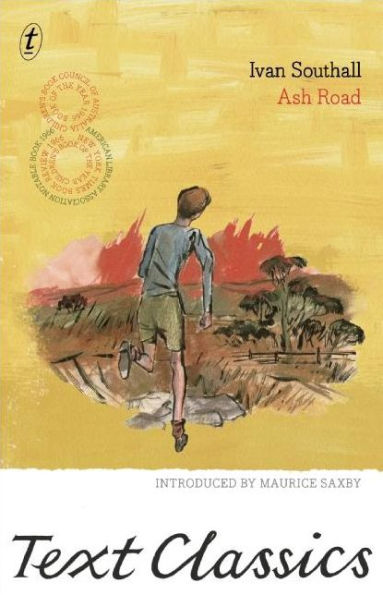

Ash Road
Generations of Australians have grown up with the cultural memory of bushfires: Ash Wednesday, Black Saturday… Ivan Southall’s Ash Road (1965) and Colin Thiele’s Jodie’s Journey (1988), two staples of old school libraries, gave me nightmares growing up, especially on nights when there had been burning-off of dead timber, and the smoldering windrows still glowed dully like eyes across the paddocks. More recently, Alice Bishop’s short story collection A Constant Hum (2019) considers the impact of the 2009 fires, while Jackie French and Bruce Whatley’s picture books Flood and Fire lyrically and sensitively portray the cycle of natural disasters in this landscape.
These 2019/2020 fires — their scope and meaning — will shift the place of burning and flame in Australian literature. Fiction will and must grapple with this: the fallout, the alternatives, and the futures. Since so many established authors have been directly affected, in addition to authors who learn to write in the shadow of these disasters, notes will have been taken, not only on the fire but all the incidental terrors, burdens, damage, regrowth, and hope. The imaginings and fictional stylings will be built on a solid foundation of thoroughly understood reality. Additionally, and significantly, such writing will not be the revelation of the experience of a few (however vividly broadcast) to the many, but an evaluation, evocation, and explanation of a shared trauma.
The Fire in our Futures
Buy the Book
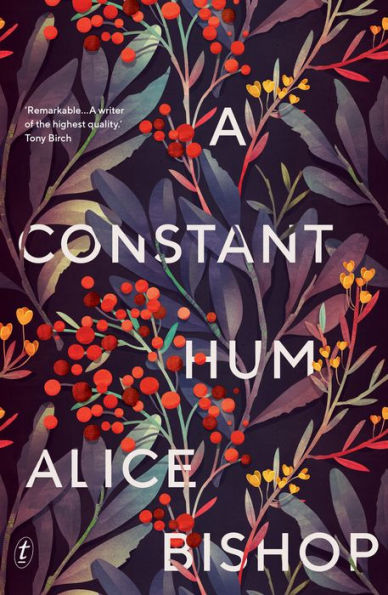

A Constant Hum
What, then, of speculative fiction in particular?
Fantasists change the world so in many ways. These fires — the circumstances that have led to them and the consequences that follow — have been extremely visible. However, (unlike, unfortunately, other contemporary events), they have also been remarkably well-documented: The disasters, the loss, the local and planetary consequences and significance, the politicking, the shifts (our own, and others’) in understanding of our reality, the waves of vitriol and the knotting-together of new communities, the flaying-open of economies and eco-systems, the peeling-back of history and assumption.
All these will and should affect our understanding of not only human stories but (in a genre so conscious of its worldbuilding) global consequences.
Consider, as just one example, from many factors implicated, the long-term impact of corporate interests on politics and policy. Personally, I would love to read more alternate history and science fiction (and oh heck, fantasy) that considers the role of corporations as artificial people. Robots and their laws, AI and its rise, get so much press. But the whole history of corporations (and the perpetually failed endeavour to retrofit some degree of social responsibility onto them) has almost from its beginnings been associated with imperialism, colonialism, genocide, famine, and ecological disaster. Yet human concepts of morality and evil continue to be simplistically attributed to these gargantuan entities that have been essentially programmed by humans to have very particular guiding principles and extremely limited foresight. How could that be changed? What could the world have looked like if these things had never been? What might happen if nothing changes?
The Australian Science Fiction Foundation https://asff.org.au/ and the (smoke affected!) Canberra Speculative Fiction Guild https://csfg.org.au/ are good places to keep an eye on some of the happenings in Australian speculative fiction, including authors who may be affected.
Please share work by your favorite Australian writers in the comments, especially those affected by the fires!
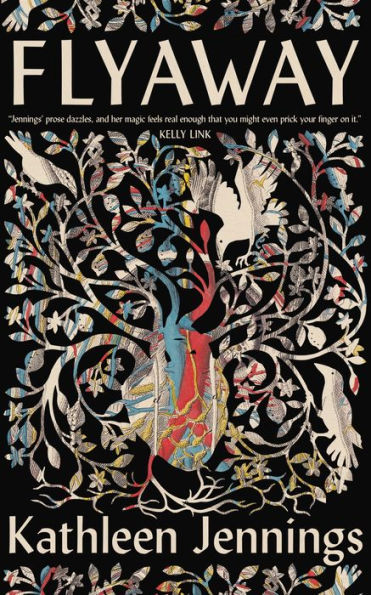 Kathleen Jennings is a writer and illustrator in Brisbane, Australia. She was raised on fairy tales on a cattle station in Western Queensland, and practiced as a translator and a lawyer (which is all stories, isn’t it?) before returning to undertake a Master of Philosophy in Creative Writing (Australian Gothic Literature) at the University of Queensland. Her short stories have appeared on Tor.com, in Lady Churchill’s Rosebud Wristlet, in anthologies from Candlewick, Ticonderoga and Fablecroft Publishing, and elsewhere. As an illustrator, she has been shortlisted for one Hugo and three World Fantasy Awards, and has won several Ditmars.
Kathleen Jennings is a writer and illustrator in Brisbane, Australia. She was raised on fairy tales on a cattle station in Western Queensland, and practiced as a translator and a lawyer (which is all stories, isn’t it?) before returning to undertake a Master of Philosophy in Creative Writing (Australian Gothic Literature) at the University of Queensland. Her short stories have appeared on Tor.com, in Lady Churchill’s Rosebud Wristlet, in anthologies from Candlewick, Ticonderoga and Fablecroft Publishing, and elsewhere. As an illustrator, she has been shortlisted for one Hugo and three World Fantasy Awards, and has won several Ditmars.










